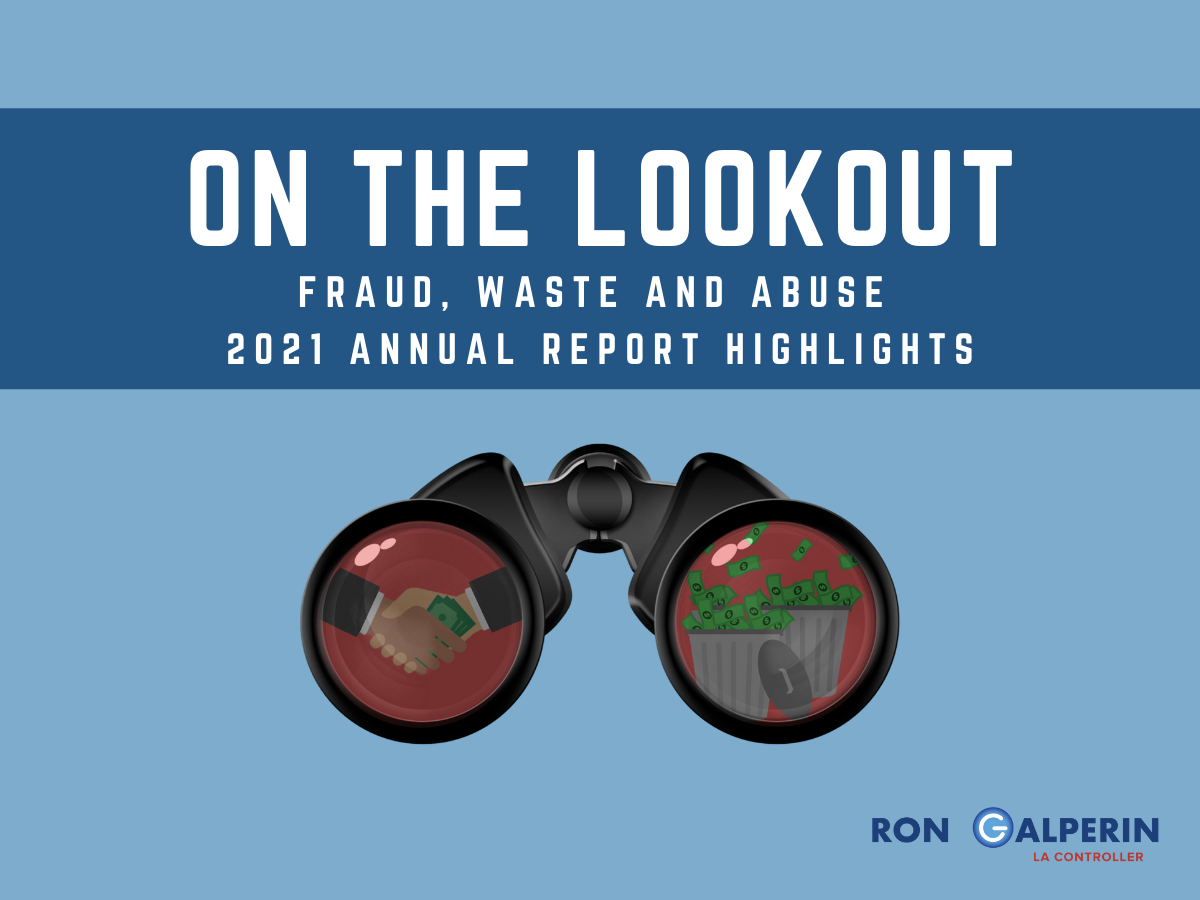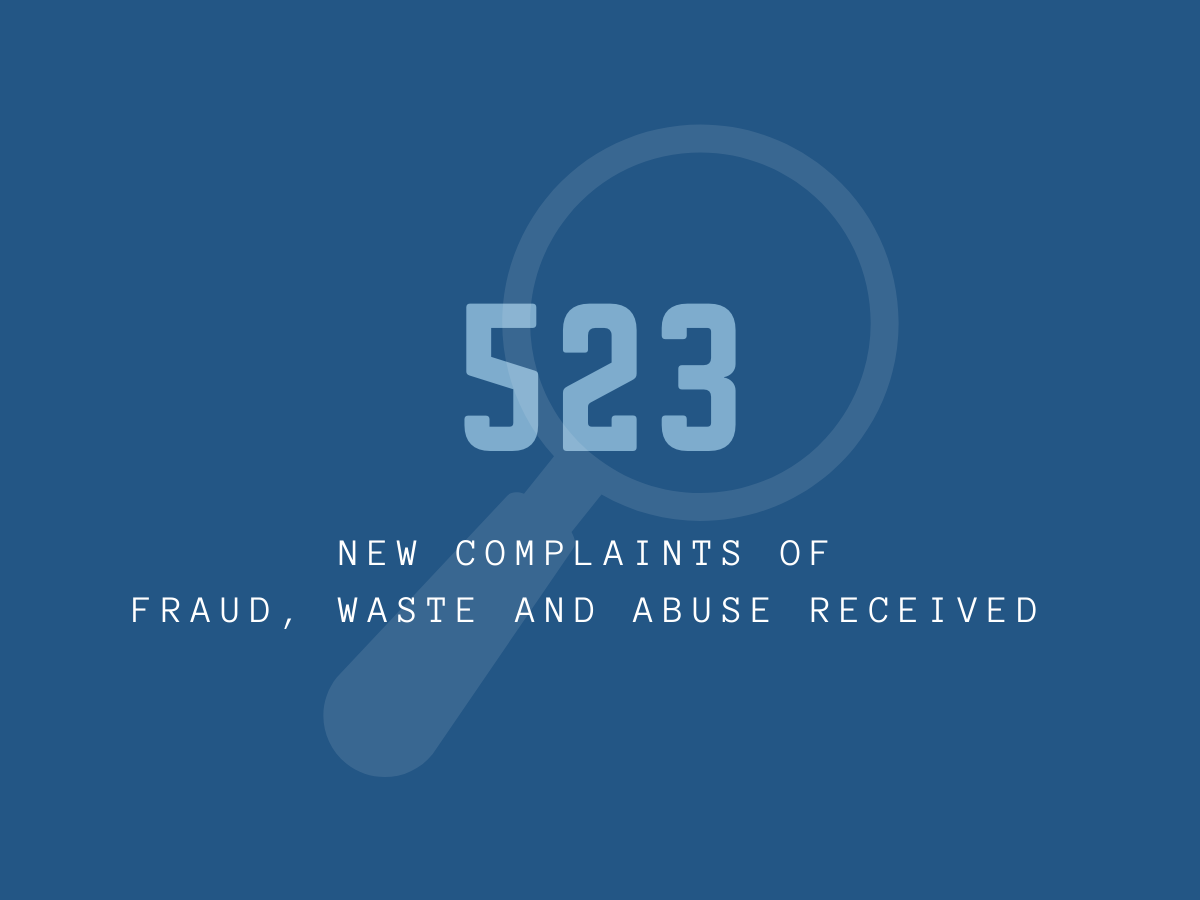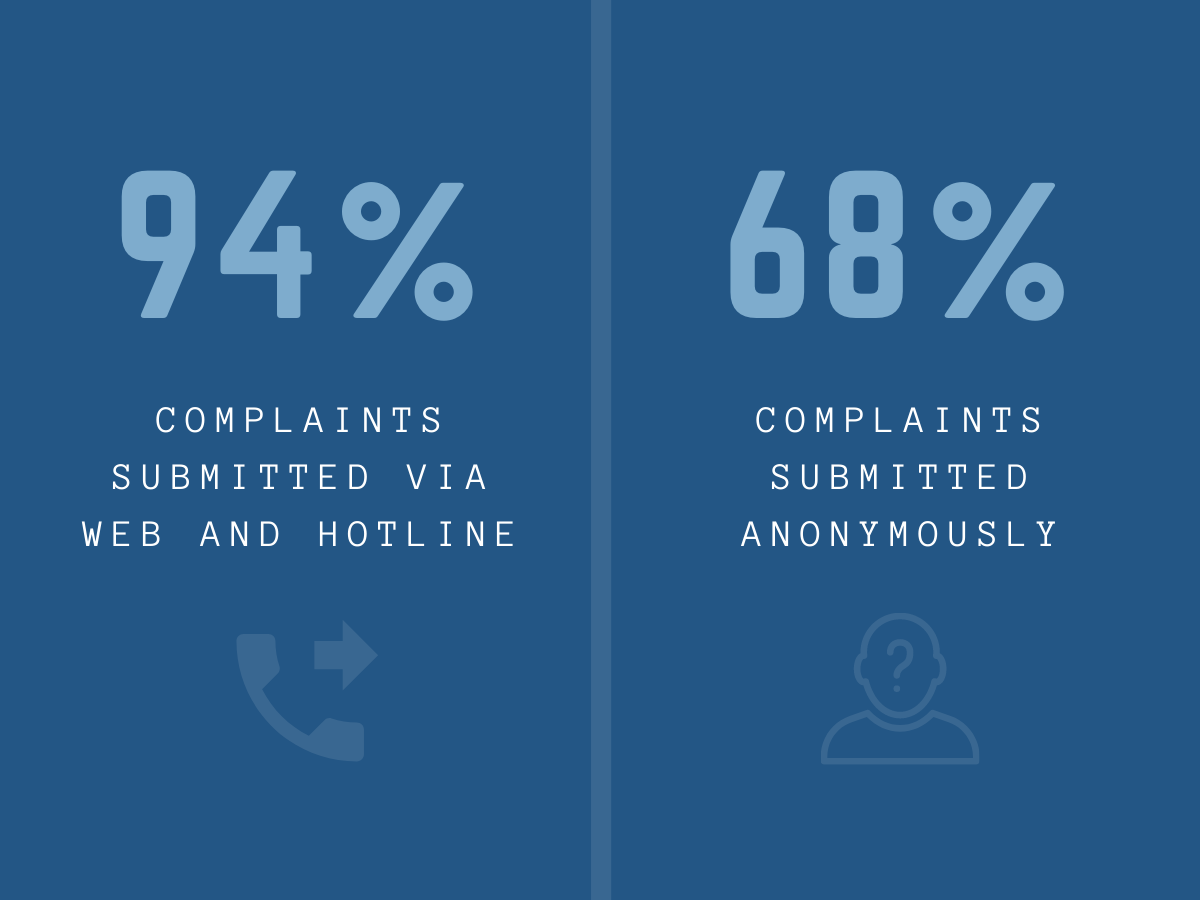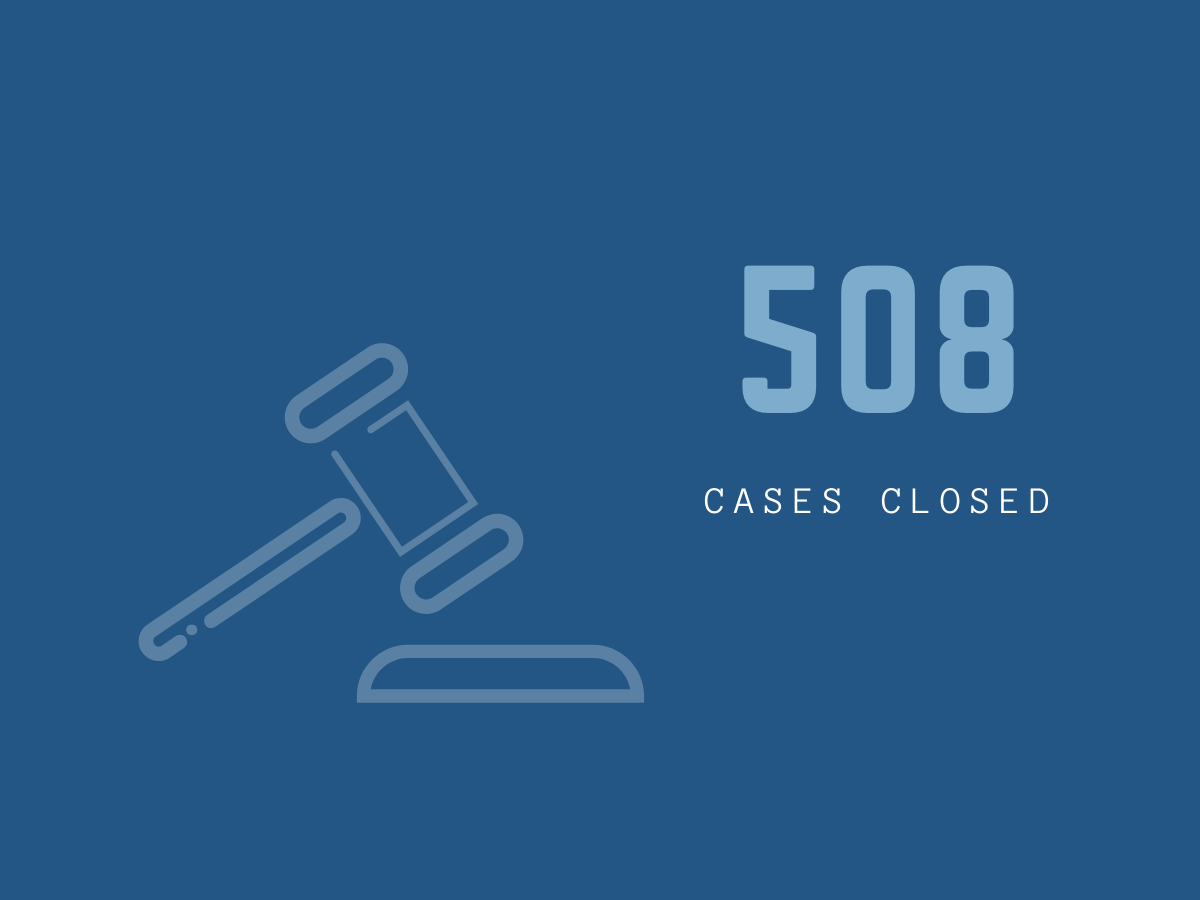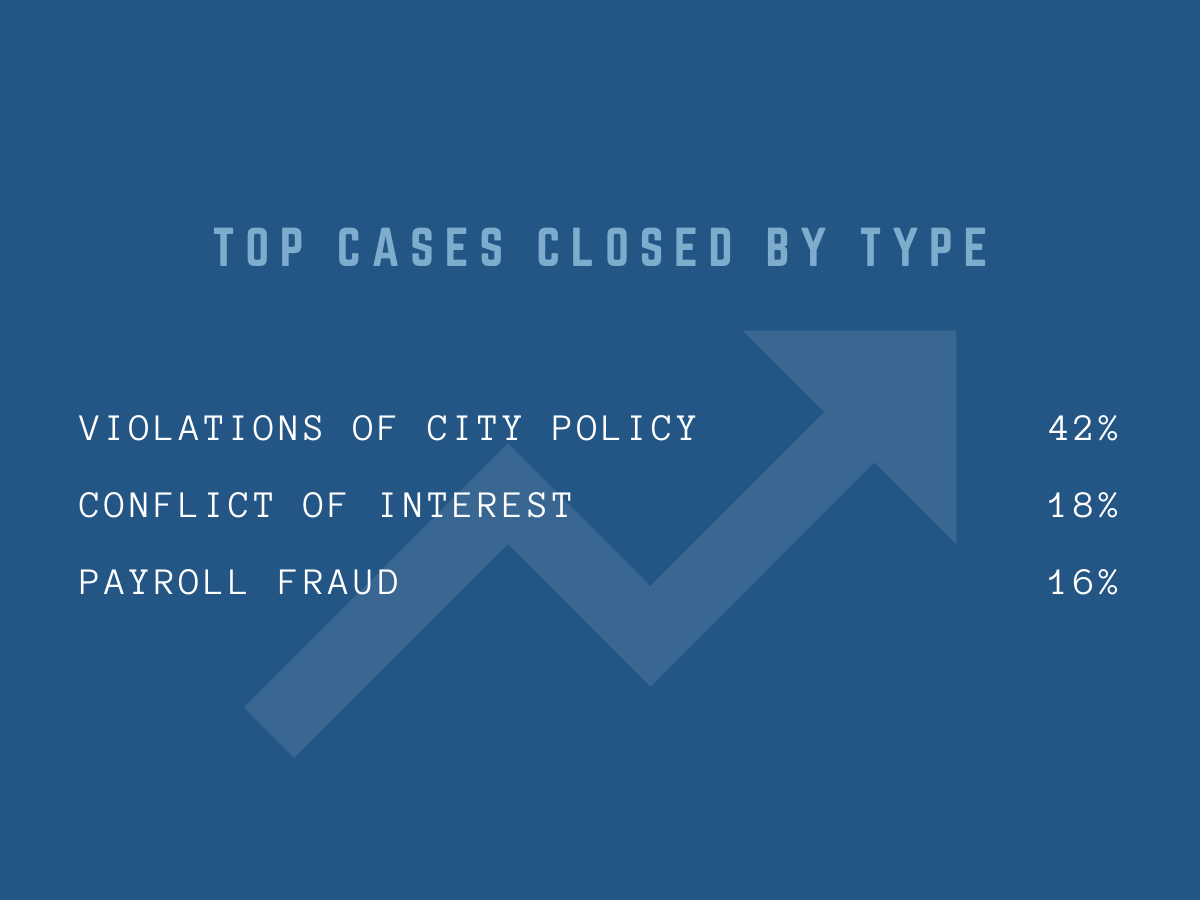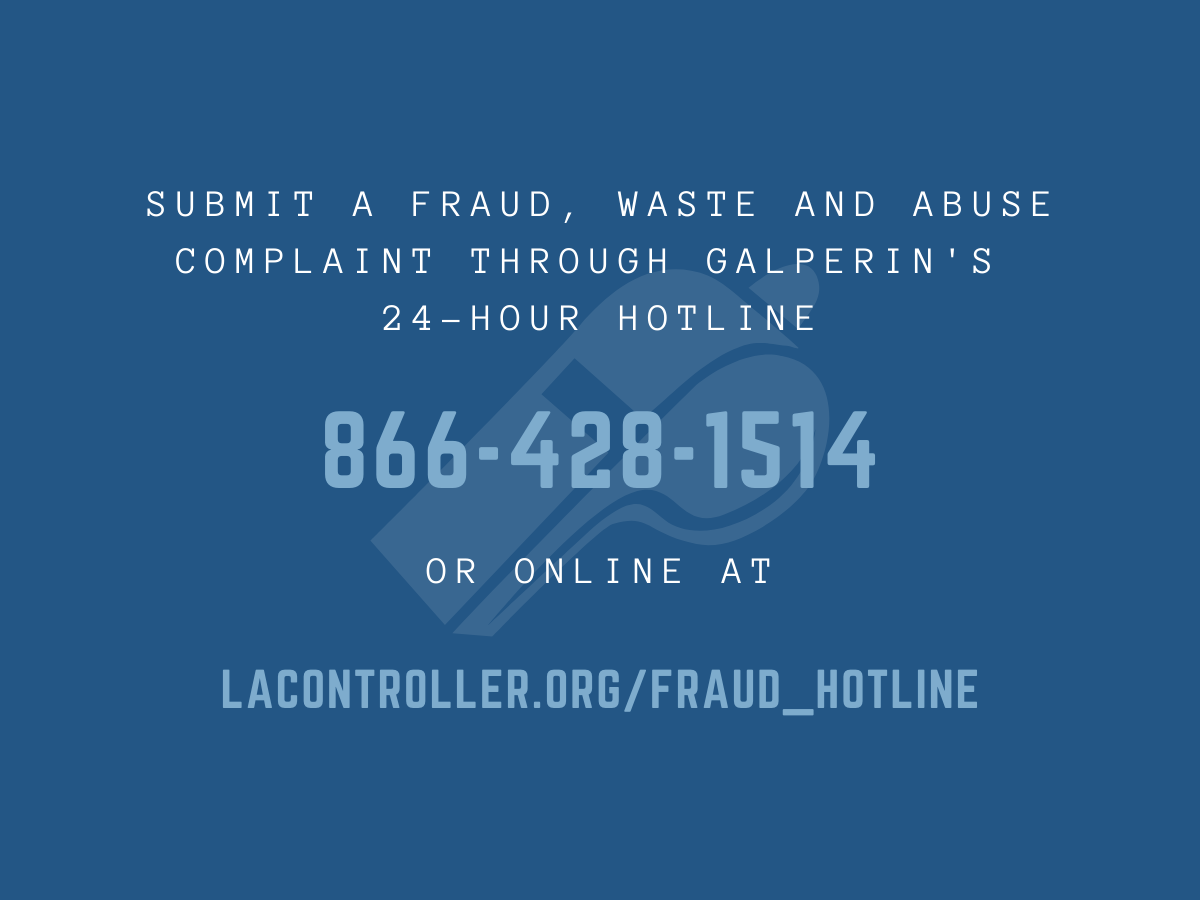On the Lookout: Fraud, Waste and Abuse Annual Report
2022 City of Los Angeles
The Controller’s Fraud, Waste and Abuse (FWA) Unit seeks to identify and prevent the misuse of City resources by employees, contractors and others. This is accomplished through a 24-hour telephone hotline and web-based complaint form, citywide education and training programs, and proactive investigations. The activity of the FWA Unit in 2021 is the subject of this report.
Each bar below contains a section of the report. Click on any to expand and read the full text of the section. Click again to collapse.
April 6, 2022
Honorable Eric Garcetti, Mayor
Honorable Michael Feuer, City Attorney
Honorable Members of the Los Angeles City Council
Re: On the Lookout: Fraud, Waste and Abuse Annual Report
The Controller’s Fraud, Waste and Abuse (FWA) Unit seeks to identify and prevent the misuse of City resources by employees, contractors and others. We do this through our 24-hour telephone hotline and web-based complaint form, citywide education and training programs, and proactive investigations. The activity of the FWA Unit in 2021 is the subject of this report.
Last calendar year, my office’s FWA Unit fielded 523 new complaints, 14 percent more than the year prior, and ultimately closed 508 total cases — with 14 complaints substantiated and 194 referred to City departments for further action. The most frequent allegation was violation or abuse of City policy, accounting for 42 percent of all cases.
Below are just a few examples of FWA Unit results. The individuals involved and, in some cases, departments are not identified in order to preserve privacy:
- Discovered that the Department of Transportation left 12 new electric vehicles, worth more than $384,000, sitting unused for over two years due to a failure to secure proper charging infrastructure when the vehicles were purchased. As a result of the investigation, the vehicles were put into service and the Controller’s Office recommended a series of improvements to the department’s purchasing and inventory controls.
- Uncovered that some salaried employees falsified time cards by reporting hours not actually worked, resulting in a loss of $50,000. The investigation’s findings lead to disciplinary action and corrective measures.
- Found that a Recreation and Parks employee violated City policy by using their position to gain access to City-owned facilities to host private sporting events without authorization. The employee was fired as a result of the investigation.
- Established that 305 employees received a total of almost $500,000 in bonus payments by remaining in “Acting Assignment” roles for longer than the one-year limit specified in labor agreements, an oversight by City departments. The investigation led to specific oversight recommendations to improve the administration of bonuses.
An updated version of the mandatory fraud, waste and abuse online training was rolled out to all City employees last year. This instructional tool has proved crucial in ensuring that employees understand how to identify and report potential wrongdoing in their work setting.
As stewards of the public’s trust, we have a shared responsibility to hold City departments and employees to the highest standards of service. My office will continue to do everything possible with the limited resources available to reduce fraud, waste and abuse of our vital public resources.
Respectfully submitted,

RON GALPERIN
L.A. Controller
The Office of the City Controller’s Fraud, Waste, and Abuse (FWA) Unit was established to screen, monitor, and investigate allegations of FWA involving City resources. To support the integrity of City operations, the Unit receives, evaluates, investigates, and reports on FWA allegations that impact City resources. The City’s definitions of Fraud, Waste, and Abuse are outlined below.
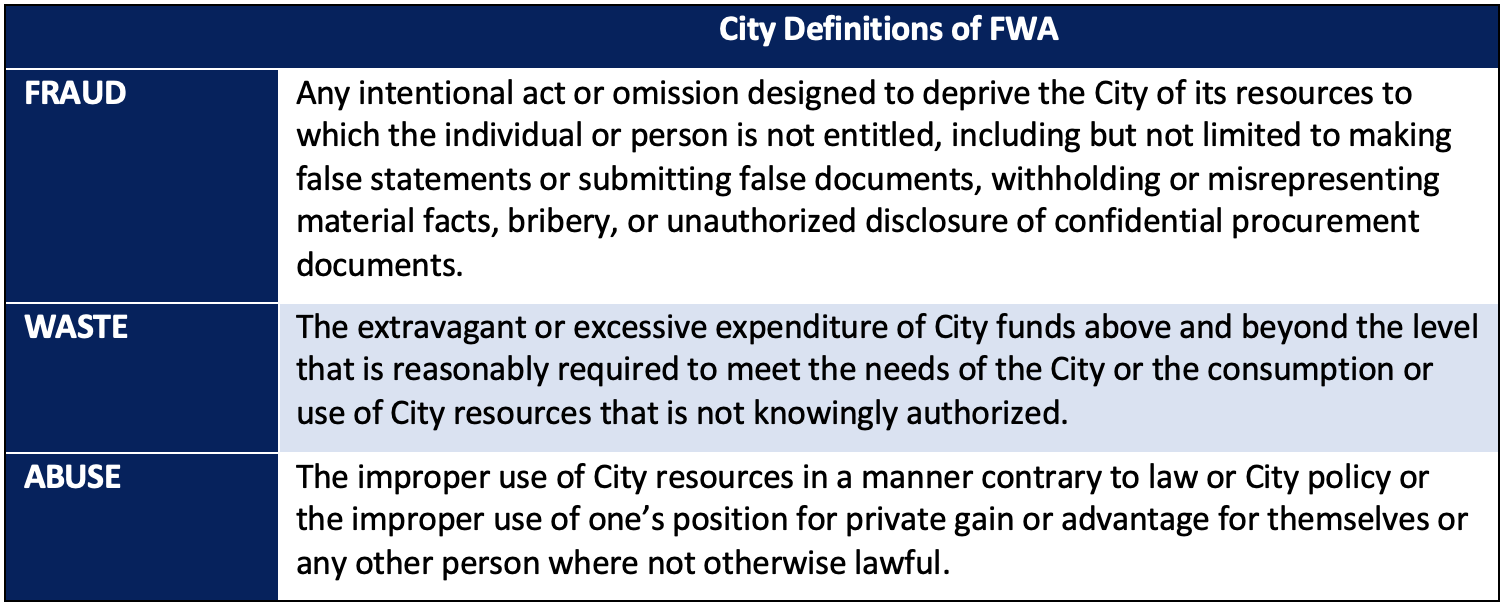
During 2021, the FWA Unit received 523 cases, an increase of 14% from the 460 cases received in the prior year. The all-time high number of cases received during 2019 was attributed to an enhanced Fraud Awareness Training developed by the FWA Unit, which is part of the City’s required bi-annual training curriculum.
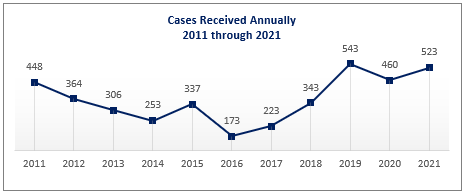
The FWA Unit has created a refreshed version of the Fraud Awareness Training which was deployed to all Departments citywide in January 2021. This training is a key resource for employees to help them remain knowledgeable about fraud risks and understand how to identify potential fraud, waste, and abuse in their work setting.
The following subsections highlight key outcomes from several substantiated cases for investigations that were conducted by, or in collaboration with, the FWA Unit during 2021. To deter the likelihood of future misconduct, it is critical that City departments administer disciplinary actions that are serious, fair, and in accordance with established policies. We found inconsistencies in the discipline imposed for the type of offense committed, which has a broader impact on the City’s overall risk framework.
Violations or Abuse of City Policy
- The FWA Unit investigated the use of the Acting Assignment bonus code and identified 305 active employees who had recorded a projected $490,000 of bonus payments exceeding the MOU policy specified one-year time limit. Proper procedure would have been for the department to review whether the Acting Assignment was still needed after the time limit was reached and if so, relieve the employee of their Acting Assignment and in-turn appoint another employee to assume the Acting role who would then receive the bonus payment. This occurred due to a lack of departmental oversight to ensure adherence to MOU requirements, and the inability of the City’s payroll system to automatically detect and restrict the bonus code usage if an employee exceeds the one-year limit. The City is currently working towards implementing a new Human Resources and Payroll (HRP) System that is set to rollout in 2022.
Our findings outlined four specific recommendations to improve oversight of assigned bonuses in accordance with MOU requirements to ensure employees are treated equitably citywide. The recommendations included the responsible departments of the CAO, Personnel, and Controller.
- A Recreation and Parks employee was investigated and confirmed to be violating policy by using their position as a Recreation Assistant to gain access to City-owned fields on weekends to host private league baseball games without authorization. The investigation found the employee was running a baseball league and personally benefited by receiving money for hosting the baseball games and even brought in portable toilets for the league to use during the weekends. The employee was terminated as a result of this misconduct.
Conflict of Interest
- A hotline tip alleged that a City employee had a conflict of interest as a committee member of a City administered scholarship. Specifically, the reporting party alleged that the subject allowed a close relative to be awarded an approximately $2,000 scholarship even though the relative did not meet the minimum requirements. During the course of the investigation, the subject admitted that the relative did receive the scholarship even though they did not meet the minimum requirements, agreed to repayment of the funds, and is no longer participating on the scholarship selection committee.
- An Airport employee was investigated based on multiple allegations of conflict of interest including photographing planes for a social media account during work hours for personal gain. The investigation found the employee did not generate income from the social media account, however the employee was counseled that these activities should be conducted during non-work hours and reinforced the department rules, regulations, and work expectations.
Payroll Fraud
- An investigation found that salaried employees at a department had falsified timecards by reporting hours not actually worked resulting in an estimated loss of over $50,000. The salaried employees had maintained a log of “book time”, which is against City policy, to account for hours worked in excess of a regular eight-hour shift to track time that they are not compensated for as a salaried employee. This “book time” would then be used by the employee by falsely recording hours worked on their timecard when in fact the employee was absent. The employees received disciplinary action for violation of the City’s payroll policies and recommendations were addressed with the department.
- A Department of Transportation employee was investigated and confirmed to be working on unauthorized outside employment and falsely reported work absences by using COVID-19 designated leave and sick time, among others. Disciplinary action is pending.
Waste or Abuse of City Resources
- A hotline tip alleged that the Department of Transportation was wasting City resources by allowing nearly 12 brand new electric vehicles with a combined value of over $384,000 to sit unused for over two years at a GSD yard instead of placing them into service. The investigation concluded that DOT did not have the proper electric charging infrastructure in place to deploy the vehicles when they were purchased which resulted in the vehicles sitting unused. The vehicles were ultimately placed into service and we recommended that the department perform a thorough evaluation as to whether there is appropriate infrastructure in place prior to purchasing similar assets that require new infrastructure for their operation.
Theft of City Resources
- A hotline tip reported that an employee was using City electricity to charge their electric vehicle for free by using a standard wall outlet at a City employee parking garage. This was not only a violation of City policy but was also a safety issue as the wall outlets are not meant to be used for electric vehicle charging. General Services Parking Division issued an administrative warning and reminded the employee of the City’s electric vehicle charger guidelines.
Case Intake
The FWA Unit can receive cases from any City department, Office, or employee, as well as any member of the public. Cases are primarily received through the Controller’s Fraud Hotline through a web intake form that can be accessed at /report-fraud-waste-and-abuse or via the hotline phone number (866) 428-1514.
Any person submitting a complaint or allegation to the FWA Unit may do so anonymously. The City’s Ethics Ordinance protects whistleblowers who report or attempt to report possible violations of law from retaliation. Any person who believes that he or she has been subjected to whistleblower retaliation may file a confidential complaint with the City Ethics Commission, which shall investigate and take appropriate action. Information regarding the FWA Unit’s cases may not be disclosed, except as necessary to conduct investigations, facilitate referrals for appropriate action, or if required by law.
During 2021, the majority of cases received by the FWA Unit were reported anonymously. Ninety-four percent of the cases were received through the Controller’s Fraud Hotline, either through the web intake form or the toll-free phone number. A small number of cases were received via email, U.S. mail, or in-person.
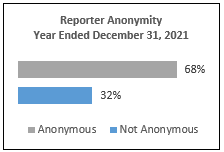

Except when prohibited by law, Los Angeles Administrative Code Section 20.60.4 requires City departments and appointed Offices to report to the Controller’s Office FWA Unit any matter involving potential FWA within ten days of discovery of information that reasonably indicates that the matter involves FWA of City resources.
Case Evaluation
The FWA Unit evaluates every case received. This includes a thorough review of all information submitted by the reporting party and can include FWA staff reviewing City data or other public databases and other information to thoughtfully evaluate the issues. Based on this evaluation, the FWA Unit will then determine whether the allegations: 1) are outside the FWA Unit’s jurisdiction and/or have no FWA impact; 2) are non-FWA investigative matters that should be referred to another City Department or jurisdiction for appropriate action; or 3) are FWA investigative matters that require an investigation or further review to be conducted by the FWA Unit or a City department. The FWA Unit may also conduct joint investigations with other entities as appropriate.
Cases evaluated as outside the FWA Unit’s jurisdiction include those that are unrelated to City operations, involve personnel-related matters, and cases for which there are no FWA issues alleged. Nevertheless, these cases may be referred to the appropriate outside agency or City Department for their consideration. For example, in 2020 several cases cited COVID-19 safety concerns and phone scammers posing as utility employees; these were referred to the applicable City Department, LADWP, or law enforcement, as appropriate. If the complaint is based solely on the reporter’s opinion, or the reported risk has been addressed through a City policy change, the case will be closed with no further action. If the matter is the subject of pending or current litigation, the case will be referred to the Office of the City Attorney.
Cases evaluated as requiring a referral to another City department or other jurisdiction for appropriate action are non-FWA investigative matters. These are issues best suited for the department to act on, but do not warrant an investigation focused on the impact to City resources. Examples include minor employee misconduct and customer service issues.
Cases evaluated as FWA investigative matters are those that have sufficient information, as garnered through the FWA Unit’s research into the allegation or documentation provided by the reporting party, which provide a reasonable basis that a FWA matter occurred or is still occurring. The case may be assigned to a City department for investigation or be investigated by FWA Unit staff, especially when the case requires forensic review of financial records, is more complex, or may be widespread due to lax internal controls.
Case Status
The following chart summarizes caseload count for the calendar year.

During 2021, the FWA Unit closed a total of 508 cases. The case closure by category is summarized in the following chart.

Case Analysis by Issue Type
Violations or abuse of City policy was the leading type of issue reported among the cases closed during the year; accounting for 16 of the 38 cases that required an investigation.

Case Analysis by Location
A summary of case metrics by department are as follows:

